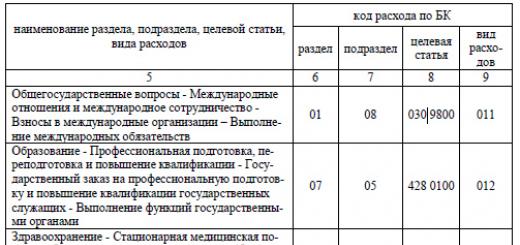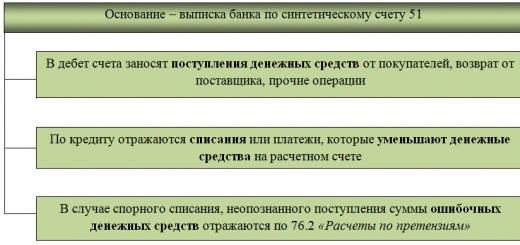Voluntary health insurance is accompanied by the issuance of an appropriate policy, as well as mandatory. It is issued by citizens who wish to receive Additional services to provide qualified assistance, while avoiding queues and large expenses. VHI often acts as one of the elements of the corporate culture of an enterprise that forms policies for its employees. What the document includes, you will be able to figure out by examining the sample VMI policy for individuals.
What does it look like
There is no strict form for this form; each insurance company has the right to establish its own format. However, there is a list of information that must be contained in it. Lack of such data may invalidate the policy. Mandatory information included in the document includes:
- Period of validity of the insurance. Here, in addition to the day, month and year, it is mandatory to include the minutes and hours from which the insurance period begins and ends.
- The name of the insurance company.
- The name of the program installed under the specific policy.
- Full name of the insured person, indicating the date of his birth, passport details and address of residence.
- The amount of insurance premium paid by him.
- The amount for which the citizen is insured.
At the end of the form, the policyholder puts his signature and seal. The owner of the policy affixes the visa next to it. An addition to it is a receipt confirming the payment of the registration fee.
Today, in our country, voluntary medical insurance is the only way to receive medical care at the proper quality level. Numerous problems of district polyclinics, queues, rudeness, lack of motivation among employees, outdated clinical and laboratory facilities lead to the need to use the VMI insurance policy.
This service was introduced on October 1, 1992 and includes additional medical and other services in addition to the established mandatory programs. health insurance.
You can become the owner of a VHI policy by concluding an appropriate agreement with an insurance company.
A voluntary medical insurance contract may include one or more medical services:
- Ambulatory polyclinic service. Primary and repeated examinations of doctors in the clinic. Therapeutic and diagnostic manipulations aimed at the relief and diagnosis of acute or exacerbation of a chronic disease. Instrumental and laboratory research methods. Treatment room services. Restorative manipulations. Preparation and issuance of medical documentation.
- Help at home. Departure of the doctor at home if the patient cannot visit the clinic for health reasons
- urgent health care. Performing the necessary emergency therapeutic and diagnostic measures, in accordance with the existing pathology.
- Stationary. Accommodation and treatment in the intensive care unit, carrying out resuscitation, surgical measures according to individual medical indications.
- Dentistry. Therapeutic and surgical dentistry.
An insurer can only be a legal entity that provides health insurance on the basis of a special state permit (license) for the right to engage in health insurance.
The contract of voluntary medical insurance is an agreement between the insured and the insurance medical organization, according to which the latter undertakes to organize and finance the provision of medical care of a certain volume and quality or other services to the insured contingent under voluntary medical insurance programs.
The contract of voluntary medical insurance must contain:
- names of the parties;
- the duration of the contract;
- number of insured persons;
- the amount, terms and procedure for making insurance premiums;
- a list of medical services corresponding to voluntary medical insurance programs;
- rights, obligations, liability of the parties and other conditions that do not contradict the legislation of the Russian Federation.
The VHI contract begins with the submission by the insured of an application for insurance. The application can be drawn up for the insured himself, for his family members or, in case of collective insurance, for employees.
In the application, the insured provides the following information:
- age
- Family status
- profession
- location
- state of health at the time of filling out the application
- the presence of chronic diseases, injuries, physical indicators, a list of past diseases.
In the case of contracts with high guarantees, the application may be asked to indicate the presence of hereditary diseases, the life expectancy of parents, data from basic laboratory tests, a predisposition to certain diseases, and also require additional medical examinations or extracts from the medical history.
When concluding collective insurance agreements, no data on the health status of potential insured persons is required.
The VHI contract is considered concluded from the moment of payment of the first insurance premium unless otherwise provided by the terms of the contract.
During the validity period of the VHI agreement, if the court recognizes the insured as incapable or limited in capacity, his rights and obligations are transferred to the guardian or custodian acting in the interests of the insured.
Each citizen in respect of whom a contract of voluntary medical insurance has been concluded or who has concluded such an agreement on his own, receives an insurance medical policy. The health insurance policy is in the hands of the insured.
If the insurance contract is concluded with individual, then in insurance policy are indicated:
- surname, name, patronymic of the insured (insured person);
- home address and telephone number of the policyholder (insured person);
- terms of insurance;
- a list of medical institutions to which the Insured has the right to apply for medical assistance or services;
- procedure and form of payment.
If the insurance contract is concluded with legal entity, then the insurance policy shall indicate:
- name, legal address and bank account details of the insured;
- terms of insurance;
- health insurance program;
- a list of medical institutions that guarantee the provision of services to the insured;
- validity period of the insurance contract;
- the number of insured persons;
- the amount of the insurance premium payable under the insurance contract;
- procedure and form of payment.
The object of VHI is the insured risk associated with the costs of providing medical care in the event of an insured event.
An insured event is an insured person applying to a medical institution from among those provided for by the insurance contract in case of an acute illness, exacerbation of a chronic disease, injury, poisoning and other accidents for receiving advisory, preventive and other assistance requiring the provision of medical services within their list provided for by the insurance contract.
An insured event is the treatment of the insured person to a medical institution during the term of the insurance contract.
The sum insured is the maximum level of insurance coverage under the health insurance contract, determined on the basis of the list and cost of medical services provided for in the health insurance contract.
Insurance premiums paid by the insured under the insurance contract are established depending on the terms of insurance, the list of medical services chosen by the insured and the level of insurance coverage under the insurance contract, the insurance period and other conditions stipulated by the insurance contract.
Under a voluntary medical insurance contract, the insured is obliged to:
- timely and in full to pay the insurance premiums stipulated by the insurance contract;
- provide the insurer with the information necessary for concluding an insurance contract, as well as other necessary information related to the validity of the insurance contract;
- ensure the safety of documents under the insurance contract.
In this case, the insured is obliged:
- comply with the instructions of the attending physician received in the course of providing medical care, comply with the procedure established by the medical institution;
- take care of the safety of insurance documents and not transfer them to other persons in order to receive medical services.
The insurer under the insurance contract is obliged to:
- familiarize the insured with the rules of insurance;
- issue an insurance policy (contract) of the established form;
- upon the occurrence of an insured event, insurance payment in the manner prescribed in the insurance contract;
- ensure confidentiality in relations with the policyholder (insured person).
The validity of the insurance contract is terminated in the following cases:
- expiration of the period for which the contract was concluded;
- fulfillment by the insurer of obligations to the insured under the insurance contract in full;
- liquidation of the insured - a legal entity in the manner prescribed by law (death of the insured - an individual);
- liquidation of the insurer in the manner prescribed by the current legislation of the Russian Federation;
- in other cases stipulated by the current legislation of the Russian Federation.
For every person living in the territory Russian Federation, there is a system of compulsory medical insurance (CHI). But we are not always satisfied with the quality of service provided by free medicine.
In this case, you should use paid medicine and get a voluntary medical insurance policy (VHI).
VHI policy- This is an official document that an insurance company issues when signing a contract for the provision of certain medical services.
Thanks to insurance under the VHI policy, you can get help in any medical institution included in the list participating in your insurance program. In addition, there are services for calling a doctor or an ambulance at home.
Abbreviation decoding
Deciphering VHI is voluntary health insurance.
In turn, voluntary medical insurance is a type of relationship, expressed in the contract, between the insured and the insurer, aimed at receiving paid medical care in the event of certain insured events, due to Money funds formed from contributions made by policyholders.
In simple words, by paying for the VHI policy, the insured protected himself from paying for certain medical services. But only in cases that are insurance, according to the program of the purchased policy.The benefit of the insurer is that, conditionally, a hundred people will buy the policy, and the insured event, suitable for all the criteria of the contract, will come from one.
The VHI system is a complex of paid medical services, united by an insurance program, and aimed at achieving a balance of interests of both parties: the insurance company and the client.
Main types
The use of the VHI policy in medicine is carried out at the request of the insured person.
 For example, a VHI policy might look like this
For example, a VHI policy might look like this To obtain a VHI policy, you must contact the insurance organization.
When choosing an insurance company, you should study the information about it on the official website on the Internet, read customer reviews.
It is very important that the insurer has a valid license!
Voluntary insurance can be individual (private) or collective (corporate).
The first kind can be optional(partially covers the costs of medical care provided) and independent (all costs are covered in full). Usually a person chooses such medical insurance for himself personally.
Second view used when choosing insurance for a group of people. Most often they are employees of one organization, the head of which concludes an insurance contract with the insurer.
What is included in the basic program?
Before concluding a VHI contract with an insurance organization, you must select a set of services that will be provided to you in medical institutions.
There are basic and extended programs of the voluntary medical insurance policy.
Usually, the first includes the following types services:
- outpatient care
- standard examinations and procedures
- visits to polyclinics from the list participating in the VHI program
- doctor's house call
- call an ambulance at home
- basic dentistry services (fillings, x-rays, root canal treatment)
- hospitalization and medications
When compiling a list of services that will be included in your insurance program, you should clarify the presence of so-called "hidden services" that the insured will not need, but which increase the cost of obtaining such a policy.
 Or so
Or so What it gives: pros and cons
Like the compulsory health insurance system, the additional one also has its advantages and disadvantages.
The advantages of a voluntary medical insurance policy include:
- The purchase of such a policy costs the insured person cheaper than visiting private clinics from time to time. This happens because the insurance company provides the medical institution with a good flow of customers and receives a wholesale discount from it, while the policyholder pays a strictly fixed price for the policy.
- The insured person receives the ability to use services beyond those established by the program compulsory health insurance.
- The client of the insurance company choose the services that he personally needs, on the type of which the amount of insurance payments will depend.
- A policy received from a representative of an insurance organization, guarantees a more polite attitude of specialists, quality services, no queues and the use of modern technologies.
There are also a few downsides:
- VHI policy has limited duration that needs to be extended.
- Service for insured persons is conducted only in certain hospitals, their list is usually attached to the contract.
- Eat the risk of imposing services on clients which they don't need.
- Services provided by an insurance company not free.
Not all people can enter into a VHI agreement. Typically, these categories of people include the following:
- elderly;
- terminally ill people;
- people with serious illnesses such as HIV, AIDS.
Photo: what does it look like?
 Photo of the VHI policy
Photo of the VHI policy VHI policy issued Insurance companies, is a paper multi-page version of the contract with annexes.
The contract is signed in two copies by both parties: the representative of the insurance company and the client.
In addition, many companies issue a voluntary medical insurance policy that looks like a plastic card. Its advantage is that it is small, so it is convenient to carry it around.
The full name of the insured person, the policy number and the date of insurance must be indicated on the policy card.
What the VHI policy looks like can be seen in the following images. As a rule, each insurance company has its own policy design.
Detailed description
 They ask: “What is this “pole” of VHI?”. “Here he is!” - we answer!
They ask: “What is this “pole” of VHI?”. “Here he is!” - we answer! The voluntary health insurance policy is plastic card or a regular paper form, on which the full name of the insured person, the policy number and the date of insurance must be indicated.
It also indicates the name of the insurance organization and its contacts.
To obtain medical services you must present the VHI policy at the clinic.
In addition, you must receive the original contract for voluntary health insurance. It is usually signed in duplicate, along with all annexes to it.It is important to understand that VHI policy does not have a strict state standard. Therefore, different companies may differ drastically. From paper to modern plastic card with photo and chip.
Useful video
An interesting video from Reso about the VHI policy. Although they praise themselves, you can get a basic idea of \u200b\u200bwhat you can get under a VHI policy. See:
What law regulates?
 There are also ordinary paper versions of VHI policies.
There are also ordinary paper versions of VHI policies. Currently, voluntary medical insurance in the Russian Federation is regulated by two laws.
These are the Civil Code and Law No. 4015-1 of November 27, 1992 "On the organization of insurance business in the Russian Federation."
In the Civil Code, the article refers to the fact that insurance should be made on the basis of a special agreement concluded between two parties: an insurance organization (insurer) and an individual or legal entity (insured).
Article 943 of the Civil Code of the Russian Federation states that the terms of the contract are determined by the rules in force in the insurance company, and its representative and the insured can agree to change these rules and amend the contract.
As for Law No. 4015-1, it deals with issues related to the purpose of insurance and participants in insurance activities.
This document also defines such concepts as insurance risk, financial security insurer insurance premium, amount, rate. According to this law, insurance rules must be observed by both parties. concluding an agreement.
How do I get treatment under supplemental health insurance?
 Some companies combine a policy and a contract VMI insurance
Some companies combine a policy and a contract VMI insurance To receive services under the VHI policy in medicine, you just need to contact a medical institution that is included in the insurance program and make an appointment with a specialist.
The most affordable basic voluntary health insurance program will allow you to seek advice from a therapist or other doctor.
Sometimes it may include basic dental services.
Do not forget about the validity period of your VHI policy.
It must be remembered that document with expired actions must be returned to the insurance company if you are not going to renew it.
You can't buy health, but you can buy an additional health insurance policy and use the quality services of specialists and the achievements of modern medicine.
In contact with
27.11.17 146 066 0
or How to be treated without rudeness, coupons and queues
In a voluntary health insurance scheme, all three of these words are important. Let's start from the end.
Insurance. VHI is a financial service provided by major insurance companies. Thousands of clients pay small contributions to the general insurance fund. If one of the insured has an insured event, the company compensates his expenses for this event.
Simplified example: 100 people paid 1000 rubles each to the insurance fund. In total, the insurance fund is 100,000 rubles. One out of a hundred people fell ill and spent 50,000 rubles on treatment - the insurance company transferred this money to the clinic from its fund. There are still 50,000 left in the fund.
In VHI, the insured event is related to the health of the client: if he gets sick, he can quickly get to the doctor, undergo an examination and immediately begin treatment, avoiding additional expenses. If nothing happens during the term of the policy, the money will remain in the fund, of which they will pay other, less fortunate insured.
Insurance is not a medical, but a financial service. Clinics provide medical services, and the insurance simply pays them. In some cases, you pay the clinic yourself first, and then the insurance company transfers the money to you.
Medical. There are many life and health insurance programs on the market: from injuries, accidents and even sudden death. Usually they involve paying a fixed amount to help cover the cost of treatment, but more often it is more like compensation for moral damages. In any case, you will have to find the right doctor on your own.
VHI works differently: the insurance company negotiates with certain clinics so that its insured clients are accepted and treated without queues and financial troubles. The patient does not have to know anything about cost and money. He should just come to the clinic with a complaint and leave healthy.
Voluntary. In Russia, there is compulsory health insurance, which applies to everyone (roughly speaking). Contributions to CHI fund All employers do it, you can’t not pay. The rules are the same for the whole country, only the lists of covered services change from region to region.
VHI is voluntary: if you want, you enter the program; if you don't want, you don't. Each company has its own private shop, list of services and clinics, their own insurance conditions, their own tariffs. As they want, so they do.
Some companies are required to issue employees of the VHI as part of an employment contract. This does not negate the fact that the program is voluntary: to issue VMI is the right of the company, not an obligation.

Insurance companies can also take on VMI not every client. If the insurance company sees that the client is going to be treated a lot and often, she may refuse to include him in the program or greatly inflate the price of the policy.
Same Doctors, Different Conditions
VHI is presented as "health insurance, but with a normal service." It means that under this program you will have access to good doctors in good clinics, without queues and paperwork.
But there is some trickery here. The insurance company does not directly affect the quality of medical services - it can only negotiate with the necessary clinics on the terms of service. And doctors treat and write out appointments for you.
Some doctors combine shifts in public and private clinics. Today you were rude at the clinic and sent for a painful procedure by appointment at eight in the morning, and tomorrow the same doctor in a private clinic will politely perform a similar procedure right there in the office. The magic of this transformation is still incomprehensible to us.
This does not mean that you will get rudeness or red tape under VHI - on the contrary, insurance companies are trying to work with good clinics. The intrigue is that good clinics may have the same doctors as bad ones.
How to use DMS
If you have already issued VHI, you can apply for help in case of illness in two ways.
Direct access. The insurance company gives the client a list of medical institutions where you can be treated under VHI. The insured simply applies to one of the indicated clinics, there is no need to notify the insurance in advance.
Call to the "medical console". Before going to the hospital, the client calls the 24-hour insurance company number. It is answered by the operator, who confirms or does not confirm that the insurance company is ready to pay for the required service. Usually such operators are people with secondary and higher medical education. They listen to the client's complaints and select the necessary clinic, calculating in advance what services will be provided to the patient. If the required procedures are covered by insurance, the operator makes an appointment with the client and sends a letter of guarantee to the clinic: they say, treat this citizen, and we will pay for these procedures.
This is convenient if the insured rarely visits hospitals or if something happened to him on the weekend when the desired clinic is closed. In theory, insurance employees should know well where, how and at what prices medical services are provided both in planned and emergency situations: which clinic has strong therapists, which is a good cardiologist, and where you should not go at all.
What will be treated under VHI
Sometimes people think that VHI is such an unlimited pass to a private clinic, like a subscription to a pool or gym. There are also such offers on the market, but these are not insurance, but package programs of specific medical centers.
For example, a clinic may offer the Headache Diagnostics program for 100,000 rubles, which will include several dozen studies. This is not DMS.
VHI - insurance against diseases: colds, poisoning, injuries, and so on. Most VHI programs do not include scheduled doctor visits, driving licenses, gun permits, or sports. The services you can expect depend on the category of your VHI program. There is a basic, advanced and full category.
I compiled average lists of medical services and VHI programs that I could get from insurance companies. But if you want to calculate the DMS yourself, to help:
- VHI calculator for individuals on the Medstrakhovka-ru website;
- VHI calculator for individuals on the Let's Compare website;
- VHI calculator for individuals on the website of the RESO-Garantia insurance company;
- VHI programs for individuals of the company "Russian Standard - Insurance".
Basic VHI program, from 20,000 R
These are medical services, free analogues of which can be obtained under compulsory medical insurance in a regular clinic:
- Access to a limited number of mid-level clinics in agreement with the insurance.
- Outpatient treatment as in a regular clinic, only without a queue.
- Private ambulance and house calls, number of visits per week or month is limited.
- Consultations of narrow specialists. This does not include all specialists - for example, there may not be a mammologist.
- Diagnostics and tests: x-ray, ultrasound, blood test - usually up to 10 procedures per year.
- Physiotherapy: therapeutic massage, inhalation, magnetotherapy, exercise therapy - usually a total of up to 10 procedures per year.
- Hospitalization in private medical centers and high-comfort wards of state clinics, but only in case of a life-threatening situation, for example, if you need to cut out your appendix.
- Payment for medicines prescribed by a doctor during hospitalization.
- Dentistry: anesthesia, treatment, light fillings, professional hygiene.
- Issuance of sick leave.
Extended VHI program, from 50,000 R
Everything in the base, plus:
- Direct access to certain mid-level clinics or access to an extended number of clinics in agreement with the insurance company.
- Unlimited number of analyzes, except for high-tech ones.
- Unlimited physiotherapy.
- An extended list of narrow specialists, including a dermatologist, mammologist, proctologist.
- Hospitalization according to planned indicators, for example, lie down under a dropper and heal, but usually only for a period of 10-15 days.
- Medical insurance for the duration of a business trip or tourist trip.
- Influenza vaccination.
- Personal doctor services - the ability to call and consult with the right specialist 24 hours a day.
- Periodic health check-ups.
- Spa treatment.
Full VHI program, from 100,000 R
Everything in basic and advanced, plus:
- Access to expensive private clinics and public hospitals with big names.
- Expensive high-tech tests, such as tomography.
- Hospitalization for both emergency and planned indicators in separate luxury wards.
- Dentistry includes whitening, prosthetics and implants.
- Pregnancy management and childbirth.
- Services of a psychotherapist.
- Diagnosis and treatment in foreign medical institutions.
These lists are indicative - the insurance company may offer you other conditions, remove or add services, or refuse altogether. Always read the contract so there are no surprises.
There is no single insurance contract for VHI - each insurance company prescribes its own conditions in a form convenient for it. Before paying for the policy, carefully study all the appendices to the contract - it should describe in detail where and from what you will be treated at the expense of the insurance, and in what cases the insurance will refuse to pay.
VMI will not treat
chronic diseases
If the client is already suffering from some serious illnesses and he will have long-term treatment and rehabilitation, the insurance company may generally refuse to conclude a VHI agreement with him: it is too costly for her. Here are the most common non-insurable cases:

Chronic diseases under VHI will be treated only in the acute stage, when there is a threat to life. At the same time, to undergo periodic examinations so that there are no exacerbations, according to VMI, most likely, it will not work.
If a client is found to have diabetes, hepatitis or cancer already during the policy period, the insurance company will pay for all procedures until the diagnosis is made. The patient will have to pay for the subsequent treatment himself.

Even if the client manages to hide the presence of a serious illness from the insurance company, it can be detected during treatment during the period of VHI. If the insurance company realizes that it has been misled, it has the right to terminate the contract. The client will lose money.
VMI will not treat
Everything that is not under the contract
If a client calls a private ambulance for a relative who is not insured under VHI, or misses an appointment with a doctor without warning, the insurance company will demand compensation for losses and threaten to cancel the contract.
The insurance company will definitely not pay for treatment that was not prescribed by a doctor. For example, if you take an x-ray of the lungs just for the purpose of general health monitoring.
Under the policy, X-rays will be paid only in case of illness with a strong cough and in the direction of a therapist. If the patient self-medicates, buys some special medicines and goes to a familiar homeopath, VHI will not cover this either.
The insurance company will refuse to pay if the insured contacts a medical facility that is not specified in the VHI contract, or performs a procedure that is not included in the insurance program.
To avoid such problems, it is better to call the phone number written on the policy and clarify everything. You are required to explain what is in your program and what you need to do to get the help you need. In general, if in doubt, immediately call the insurance company.
VMI will not treat
Medical services in other cities
Typically, the coverage area of the VHI policy is limited to the city of residence of the client - this is indicated in the contract. Therefore, it is most likely that it will not work to go for free treatment in the capital's clinics, having issued VMI in another region.
Some insurance companies sometimes give clients a "gift" - they include emergency assistance throughout Russia in the VHI program. Often this is just a marketing ploy: according to the law, in case of a threat to life, medical care is provided throughout the country, to any citizen, and always free of charge.
VMI will not treat
unearthly beauty
The basic and extended VMI programs almost never include aesthetic medicine and cosmetology: removal of moles and papillomas, teeth whitening, plastic surgery. The services of a psychotherapist are usually included only in the full insurance package.
If the eyes hurt, cataract surgery can be performed using DMS, but surgery to improve vision cannot be performed, because nearsightedness or farsightedness does not affect the patient's health.
VMI will not treat
Consequences of revelry and suicide attempt
Under no circumstances will the insurance company pay for the treatment of a patient if it establishes that he was injured while under the influence of alcohol, drugs or toxicological poisoning.
Also, the insurance company will not pay for treatment after intentionally harming one's own health or attempting suicide.
The list of insured events does not include damage to health as a result of radiation exposure, hostilities, civil unrest, terrorist attacks, natural disasters and other emergencies.
How to issue
Get VHI at work
The benefits of VHI are mainly enjoyed by residents of large cities working in prestigious organizations. But corporate voluntary medical insurance is not only a nice bonus, but also a control tool. What services and for what amount are included in the VHI policy is determined by many factors: position, length of service, value for the company. More skilled workers have better conditions and better insurance coverage.
If a person just got a job in a company, most likely, he does not yet have access to corporate voluntary medical insurance. Some companies give a policy after three months, some - after six. Some wait a year. But when an employee decides to quit, the employer can cancel his VHI immediately, although he still has to work 14 days.
The main disadvantage of corporate voluntary medical insurance: the employer chooses the insurance program, and the employee just has to agree with it. It happens that under a collective insurance agreement a small sum insured per person. If the insured exceeds it, then he will have to pay for treatment out of his own pocket.
If a company offers its employees an extended insurance program, it may ask them to pay part of the insurance premium on their own, for example, 3,000 R out of a conditional 10,000 R. But even so, it will turn out to be much cheaper than buying a policy individually.
The most generous companies pay VHI not only to employees, but also to their spouses. A policy for children under 18 and elderly parents can also be included in corporate VHI. You will have to pay for it yourself, but the insurance will give a discount.
 Leading insurance companies in Russian market Voluntary medical insurance in 2017, according to the Expert rating agency
Leading insurance companies in Russian market Voluntary medical insurance in 2017, according to the Expert rating agency How to issue
Buy VHI through an employer in a clubbing
Even if the company does not offer its employees medical insurance, they can chip in and buy a collective agreement on voluntary medical insurance through the employer. This is beneficial for everyone: an employer, by applying for a corporate VMI, will be able to reduce their tax base, and employees will receive policies much cheaper than if they bought them separately.
The cost of a basic VHI policy for a private person starts from 20,000 R. If VHI is bought for a team, in terms of each person, the price of the policy starts from 10,000 R. This is beneficial, given that just one appointment with a doctor in a private medical center costs from 800 R, and the departure of a private ambulance team or calling a specialist to your home costs from 2000 R.
On the other hand, for a healthy and successful person, these expenses will not be justified and he will pay his contribution for others.
Typically, insurance companies sell VHI policies to work teams of 10 or more people. Often, insurance companies do not check whether a person works in a given organization or comes from outside - the main thing is the size of the group. Therefore, you can invite friends and acquaintances to also join your corporate VHI.
Intermediary companies are also working on the market, offering everyone to individually join large corporate insurance programs. They promise to take into account the wishes of the client on filling the program and give a discount of 50% or more. The reliability of such intermediaries and the legal organization of relations with them are unclear.
How to issue
Buy VHI as an individual
Insurance companies are reluctant to sell VHI policies on an individual basis. Negative selection works: roughly speaking, when a person pays 50 thousand rubles for insurance, he will try very hard to recover for 70 thousand. The insurance company does not want to incur losses, so it either sets protective rates or refuses to take on a client.
To assess the risks, the insurance company will ask you to fill out a questionnaire and indicate all health problems. If a client smokes, is overweight or works in a hazardous industry, he is at risk for a number of diseases. The insurance company will set a multiplying factor for such a person, and the price of the policy for him will increase. VHI for young children, pregnant women and the elderly is the most expensive.

Usually, VHI for individuals is offered only by those insurance companies that have their own medical centers. So they control the cost of treating clients. For example, Ingosstrakh owns a network of clinics "Be healthy", Alfastrakhovanie has a regional network of medical centers "Alpha - Health Center", RESO-Garantia manages Medswiss clinics. With a high probability, they will send their clients to these medical institutions, at least in the basic program.
One of the advantages of self-purchasing VHI is the ability to choose all the necessary components and conditions of the insurance program yourself. When buying a policy, be sure to specify:
- What is included in the list of insured events.
- What is included in the exclusion list.
- Whether the number of specific tests and procedures is limited.
- Which clinics will be available to you.
- Will I have to coordinate a visit to the doctor with the insurance every time or is direct access possible?
- The VHI policy works only in the city of residence or throughout the country.
Buying a voluntary health insurance policy is an expense for treatment. If you have taken out VHI for yourself, your spouse, children under 18, or your parents by paying out of your own pocket, you are entitled to tax deduction- 13% of the cost of the policy, but not more than 15,600 R per year. How to get a tax deduction for medical treatment,
How to lower the price of VHI
If the employer does not have a voluntary medical insurance program, but you understand that you really need it, try lowering the price of an individual VHI policy.
Assess insurance risks. Consider which medical services you will need first. Often for this it is enough to remember the history of your visits to the doctor over the past year.
Refuse dentistry on VMI. Dental care makes up the lion's share of the cost of VHI. In this case, most often, basic procedures guaranteed by the compulsory health insurance program are assumed. You can also treat your teeth with high quality according to compulsory health insurance, attaching to a good private dentistry.

Avoid popular clinics. When buying VHI, it is important which clinics you choose for treatment. If you do not need consultations from the luminaries of domestic medicine, it is better to abandon medical institutions with big names and choose several ordinary clinics close to home. It'll come out cheaper.
There is a conditional deductible - when the patient himself pays for treatment within the deductible amount, for example, 10,000 R. If the treatment cost more, for example, 11,000 R, all expenses will be covered by the insurance.
There is an unconditional franchise - when the insurance company compensates the client for the difference between the total expenses and the franchise price. For example, if with a deductible of 10,000 R, the treatment cost the same 11,000 R, the insurance company will compensate the patient for the difference - 1,000 R.
There is also a temporary franchise - when, after the conclusion of the contract, the policy begins only after a while. So the client confirms that for him VHI is insurance for the future, and not a way to cash in on insurance right now.
The franchise is beneficial for people in good health who are willing to bear the small costs of treatment themselves, but want to save themselves from large expenses in the event of a serious illness. It allows you to buy VHI with a wide insurance coverage and in some cases save up to a third of the cost of the policy.











